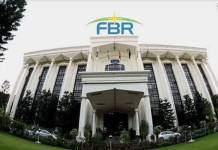By: Sardar Yasir Ilyas Khan
CEO Centaurus
President Citizens Developers Association / Former President Islamabad Chamber of Commerce and Industry
Devaluation of the rupee has enhanced the debt burden for Pakistanis and collective liabilities have exceeded $100 billion. The business community has constantly been pushing all the governments that have come and gone to introduce structural reforms in order to control costs and unnecessary expenditures. All state-owned enterprises should have been privatised long ago which are in losses with atrocious liabilities that would overburden any new buyer willing to acquire them. Despite global recessions and natural disasters over 170 countries world-wideare able to manage their affairs without the support of the IMF, then why can’t Pakistan? A country which has the 5th largest reserve of minerals, 5th largest producer of mangos, top 10 in terms of rice and cotton production with an area of over 850,000 sq kilometers and a coastline with the finest beaches and the potential to develop the best waterfront properties.
These loans have become a greater burden for Pakistan’s current and future generations as opposed to being considered as a form of relief. Constant escalation in the tariffs, increase in GST, additional taxes on real estate, retail, increased import duties and constantly rising food inflation are all factors which have turned the people of Pakistan into survivors and will force industries to relocate elsewhere. Unofficially it has been estimated that inflation has reached over 50%, this number is shocking when compared to the UK which is facing only 11% inflation and Switzerland which has merely touched 3.3%. The increased cost of living and doing business in Pakistan has become the leading reason behind all the brain drain problems we are facing. Furthermore, Pakistan will continue to face a fiscal deficit year on year until FBR does not broaden the tax net. The tax system has already been declared as one of the most complex in the world which badly needs restructuring. FBR has been trying to scrutinize the real estate industry which drives nearly 60 allied industries and is already encumbered with taxes such as advance capital gains tax, stamp duty, advance income tax, tax on property retention, tax on deemed income, cvt foreign assets, property tax, tax on rental income etc. FBR needs to prevent any further rise of taxes on both large and small scale industries as well as all those sectors which are contributing to the economy, if the cost of doing business exceeds any further businesses will have no choice but to relocate to the middle east or the west. This primarily revolves around the high cost of lending, increased tariffs, fuel prices, labour cost, high cost of raw materials due to increased duties, import taxes and ban on imports in general. The tax to GDP ratio must increase over 9% in order for the country to be able to meet its expenditures. The Government’s decision to increase GST is also a temporary solution, hence the undocumented economy of markets across Pakistan needs to be brought on board and added to the tax net so that the entire weight of the tax liability does not fall onto the shoulders of the average taxpayer and businessmen across the country.

















